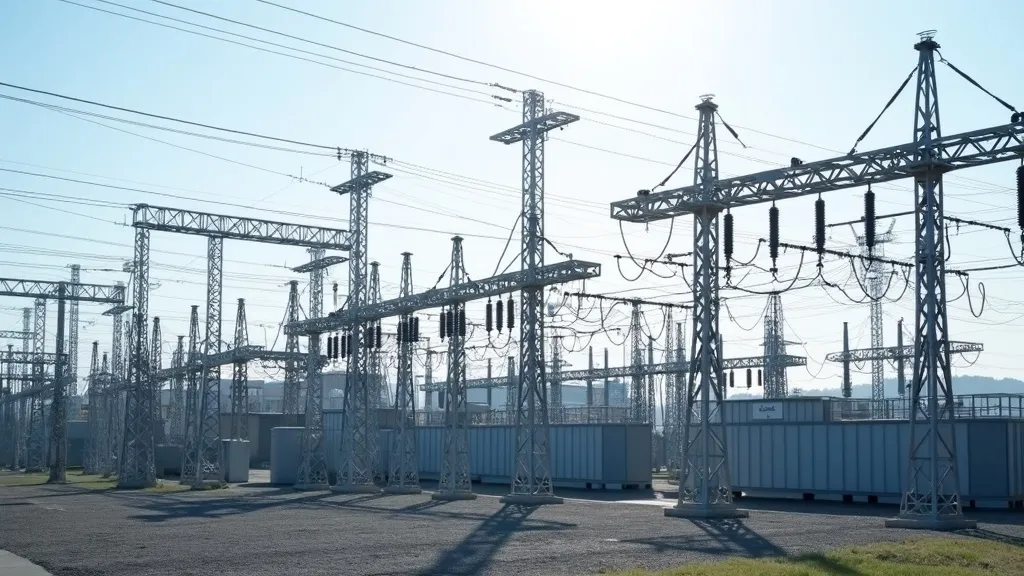This guide delves into the intricacies of AC 380 systems, which are a crucial aspect of electrical engineering, particularly in industrial applications. AC 380 refers to a three-phase voltage standard used for heavy-duty electrical equipment. This article explores the technical specifications, benefits, and applications of AC 380 systems, providing insights into their role in modern industry.

AC 380 systems play a pivotal role in the field of electrical engineering, especially within industrial applications. These systems are critical for powering heavy-duty machinery and equipment, offering a robust three-phase voltage standard. Understanding the nuances of AC 380 systems is essential for engineers and industry professionals who deal with high-voltage applications. As industries evolve, the demand for reliable and efficient power systems increases, making knowledge of AC 380 systems invaluable. This article delves deeper into the technical specifics, benefits, applications, and future trends surrounding AC 380 electrical systems.
AC 380 refers to a three-phase alternating current (AC) voltage standard of 380 volts. This voltage level is commonly used in industrial settings to power large machinery and equipment. The three-phase system offers several advantages over single-phase systems, including increased efficiency and the ability to carry more power over longer distances with less energy loss. The three-phase configuration also provides a more consistent and stable power supply, which is crucial for the operation of sensitive machinery that requires precise voltage and current levels.
AC 380 systems are designed to handle high power loads, making them ideal for industrial applications. These systems typically consist of three conductors, each carrying an alternating current of the same frequency and voltage amplitude, but with a phase difference of 120 degrees. This configuration allows for a continuous power supply, minimizing the risk of power interruptions. The three-phase power system inherently balances the load, reducing the likelihood of outages or equipment failure due to uneven power distribution.
The use of AC 380 systems in industrial applications offers several advantages:
AC 380 systems are widely used in various industrial sectors, including:
| System Type | Voltage Level | Applications |
|---|---|---|
| AC 220 | 220 volts | Residential and light commercial use |
| AC 380 | 380 volts | Industrial applications |
| AC 480 | 480 volts | Heavy industrial applications |
While AC 380 systems offer numerous benefits, safety is paramount. Working with high-voltage systems requires strict adherence to safety standards and protocols to prevent accidents and injuries. Some critical safety considerations include:
The primary advantage of AC 380 systems is their efficiency in transmitting power over long distances with minimal energy loss, making them ideal for industrial applications. Additionally, their ability to provide a consistent power supply enhances the operation of industrial equipment.
AC 380 systems are generally not used in residential settings due to their high voltage, which is more suited to industrial applications. Residential power systems typically operate at lower voltages, such as 220 volts, to ensure safety and compatibility with household appliances.
AC 380 systems operate at a higher voltage level than AC 220 systems, offering greater power capabilities and efficiency for industrial use, whereas AC 220 systems are typically used for residential and light commercial applications. The greater capacity of AC 380 systems allows for the operation of larger machinery that requires significant power input.
AC 380 systems are utilized in various types of machinery, including heavy industrial equipment like lathes, milling machines, compressors, and pumps. Additionally, they power large motors used in manufacturing processes and construction equipment that require substantial energy to operate effectively.
Three-phase power is significant in AC 380 systems as it allows for a more efficient and balanced power supply. This configuration reduces the amount of current needed to transmit the same amount of power compared to single-phase systems, leading to lower losses and improved overall system performance. Furthermore, three-phase motors tend to run smoother and have higher torque, making them ideal for various industrial applications.
As technology continues to advance, the landscape of AC 380 systems is evolving. Key trends include:
AC 380 electrical systems are an essential component of modern industrial infrastructure, providing the necessary power and efficiency for large-scale operations. Understanding the technical aspects and applications of these systems is crucial for professionals in the electrical engineering field. As industrial demands continue to grow, AC 380 systems will remain a vital part of the global electrical landscape. With ongoing advancements in technology and a focus on sustainability, the future of AC 380 systems looks promising, paving the way for innovative solutions that will further enhance their efficiency and applicability in various industries.
Explore the Tranquil Bliss of Idyllic Rural Retreats

Ultimate Countdown: The 20 Very Legendary Gaming Consoles Ever!

Understanding Halpin and its Influence

Affordable Full Mouth Dental Implants Near You

Discovering Springdale Estates

Illinois Dentatrust: Comprehensive Overview

Embark on Effortless Adventures: Unveiling the Top in Adventures Made Easy Outdoor Equipment

Unveiling Ossur Valves: Innovation in Prosthetics

Unlock the Full Potential of Your RAM 1500: Master the Art of Efficient Towing!
